Brussels challenges Georgia, embraces Armenia Visa liberalisation rift
The European Commission has issued a tough eight-point ultimatum to the Georgian authorities, with compliance being a condition for maintaining the visa-free regime. Among Brussels' demands, the key requirement appears to be the full protection of LGBT rights and the repeal of the legislative package titled on “family values and protection of minors,” which prohibits LGBT propaganda. Meanwhile, Armenia continues its rapid rapprochement with the EU and is moving toward obtaining a visa-free regime — and, judging by the situation, the LGBT issue plays a significant role in Brussels’ growing favour toward Yerevan.
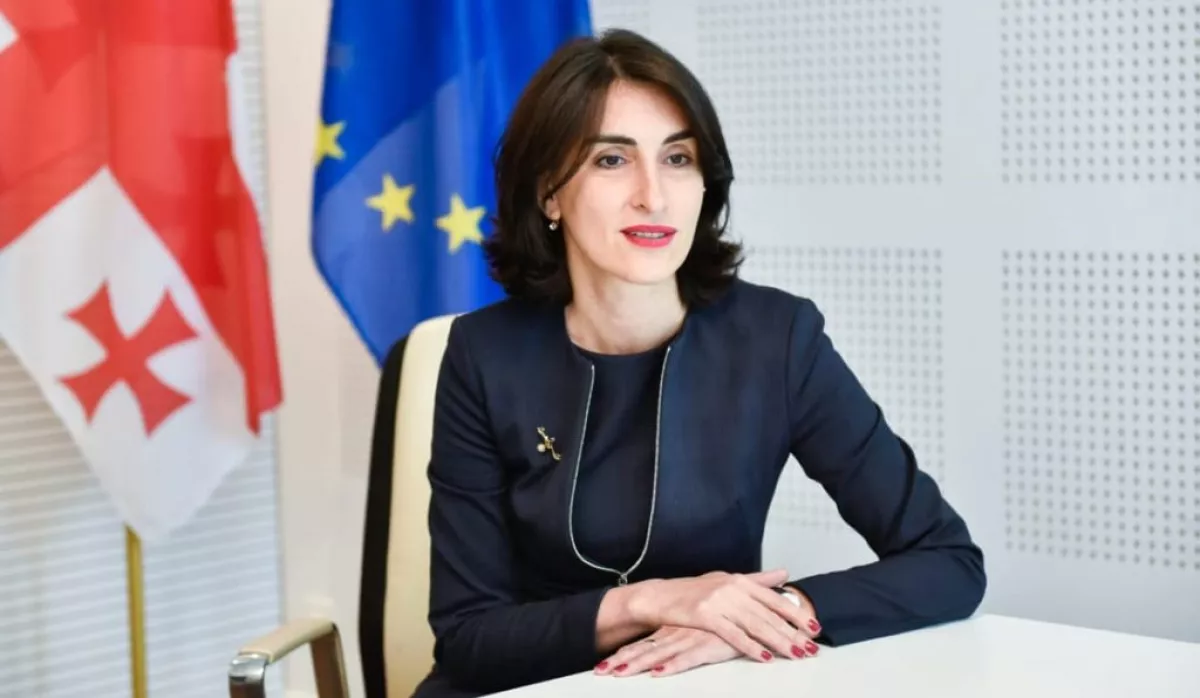
The full list of demands from the European Commission is outlined in a letter from Beate Gminder, Director-General of the Directorate-General for Migration and Home Affairs, addressed to Georgia’s Minister of Foreign Affairs, Maka Botchorishvili. Georgian Prime Minister Irakli Kobakhidze responded to the ultimatum, rejecting the demands and stressing that Georgia’s authorities will not allow revolutions or destabilisation to be organised from outside the country. According to him, the laws concerning family values and the protection of minors — which have drawn criticism from European officials — are of vital importance to Georgian society.
“As for the new laws: these include the law on family values and the protection of minors, and the law on the transparency of funding for organisations and media — all of them are of fundamental importance for our country. The 'transparency' law is essentially a law ensuring transparency of revolutionary activities. If someone wants to fund revolutionary processes in Georgia, they should do so openly. We are open to reasonable dialogue with all parties on any issue. But the European Union must not be presented to Georgian society as the Soviet Union.”
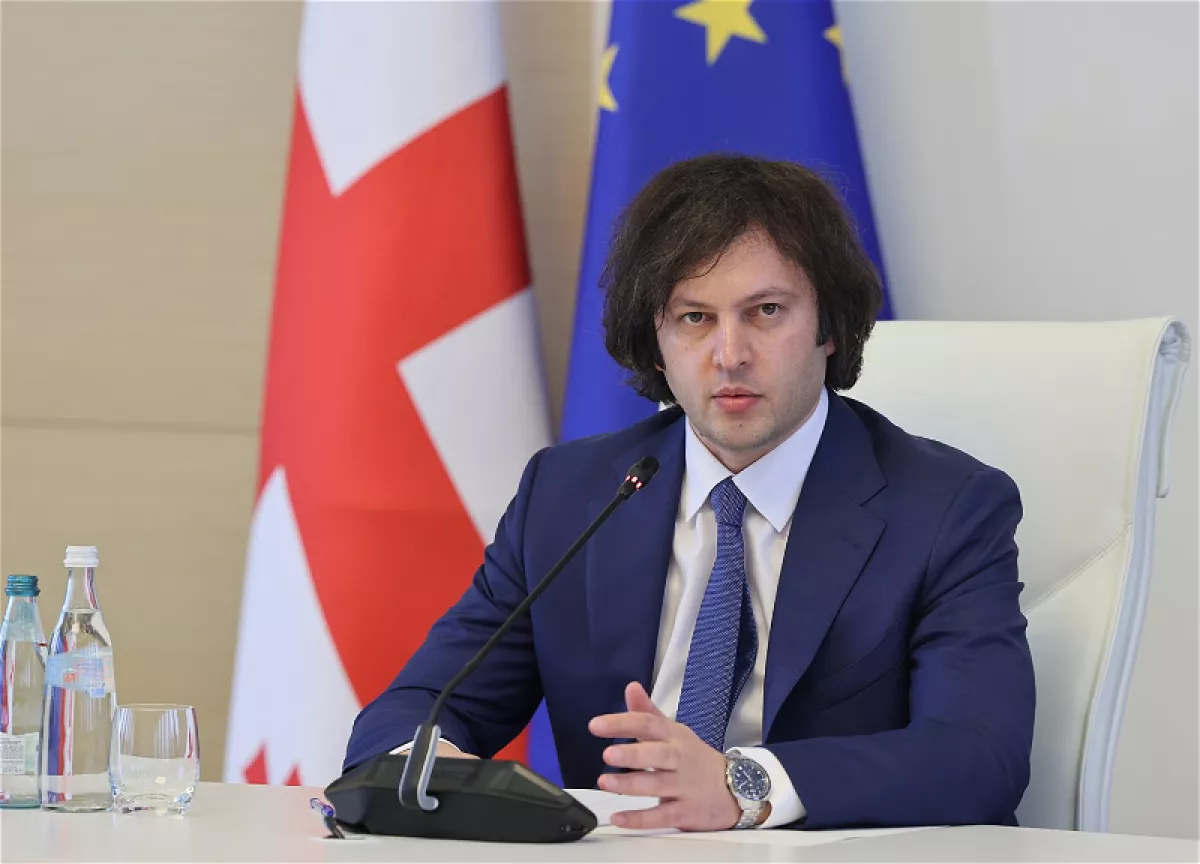
“What was happening in the USSR? Directives came from Moscow, and if you didn’t follow them — you were punished. So how is Brussels any different from Moscow? Brussels must not resemble Soviet Moscow. All our actions fully align with fundamental human rights. We are responsible for peace, stability, and development in Georgia… When we’re told not to adopt a law that restricts foreign interference in organising a revolution — that is a threat to stability. And if we are forced to choose between stability and visa liberalisation, we will, of course, choose stability. That is the choice of the Georgian people. We will not back down,” said Irakli Kobakhidze.
Georgian Parliament Speaker Shalva Papuashvili also strongly criticised the European Commission’s demands.
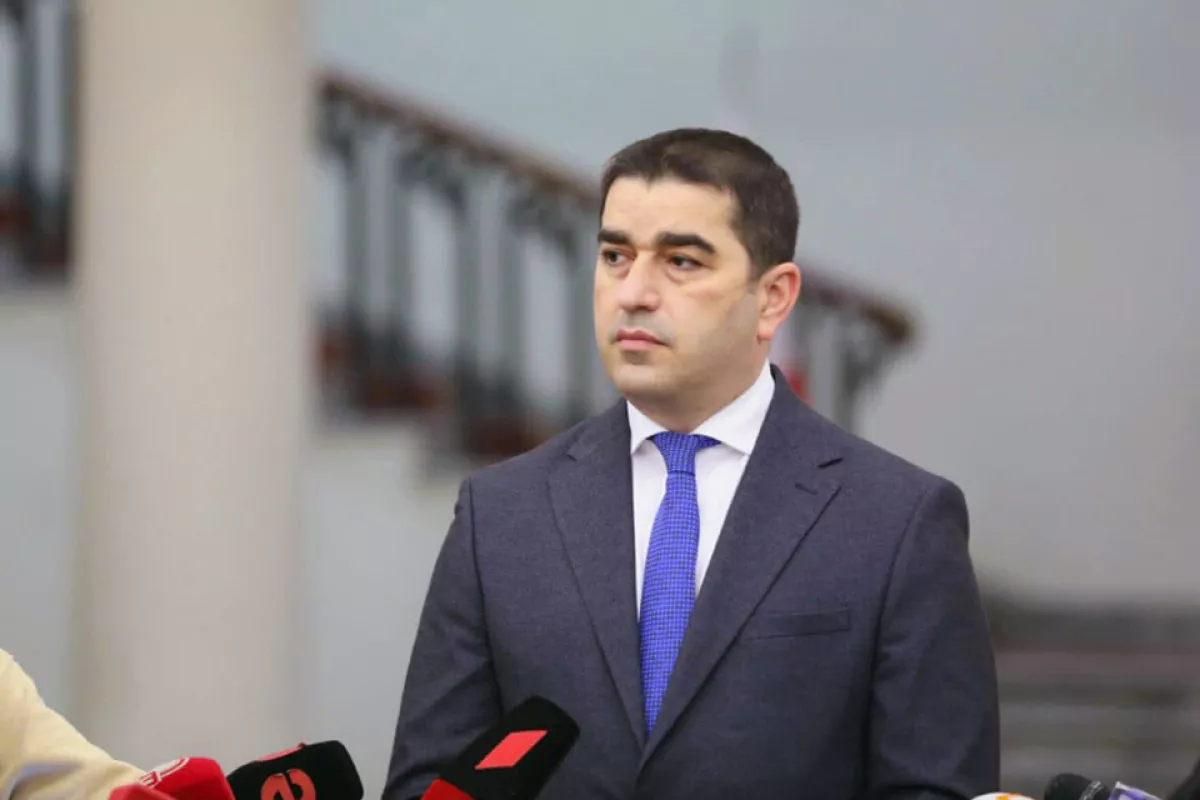
“Brussels tells us: say the Earth is flat. Or that a man can become a woman. Brussels is essentially saying that our sovereignty means nothing. That our struggle for independence means nothing. That decisions about funding and its conditions must be made in Brussels — behind the backs of our society. This is the direction they were heading in, trying to formalise it legally. And the laws we adopted have put an end to exactly that,” Papuashvili said.
The comparison of Brussels’ pressure with Soviet-era practices — when directives were issued from Moscow — is telling. If back then it was communist ideology that was being enforced, today it is the LGBT ideology promoted by the EU. In the post-Soviet space, the advancement of this agenda often coincides with “revolutionary” movements inspired by Brussels. Armenia under Nikol Pashinyan, who came to power through a “velvet revolution,” is a vivid example of this trend. Not long after the revolution’s success, a transgender person was given the floor in parliament — something previously unthinkable.
Following Pashinyan’s rise to power, members of Armenia’s LGBT community began to feel emboldened. In August 2018, a group of men dressed in women’s clothing and their supporters stormed the headquarters of the national police in an attempt to retaliate over the detention of a suspect accused of attacking LGBT individuals. During the incident, police officers were assaulted.
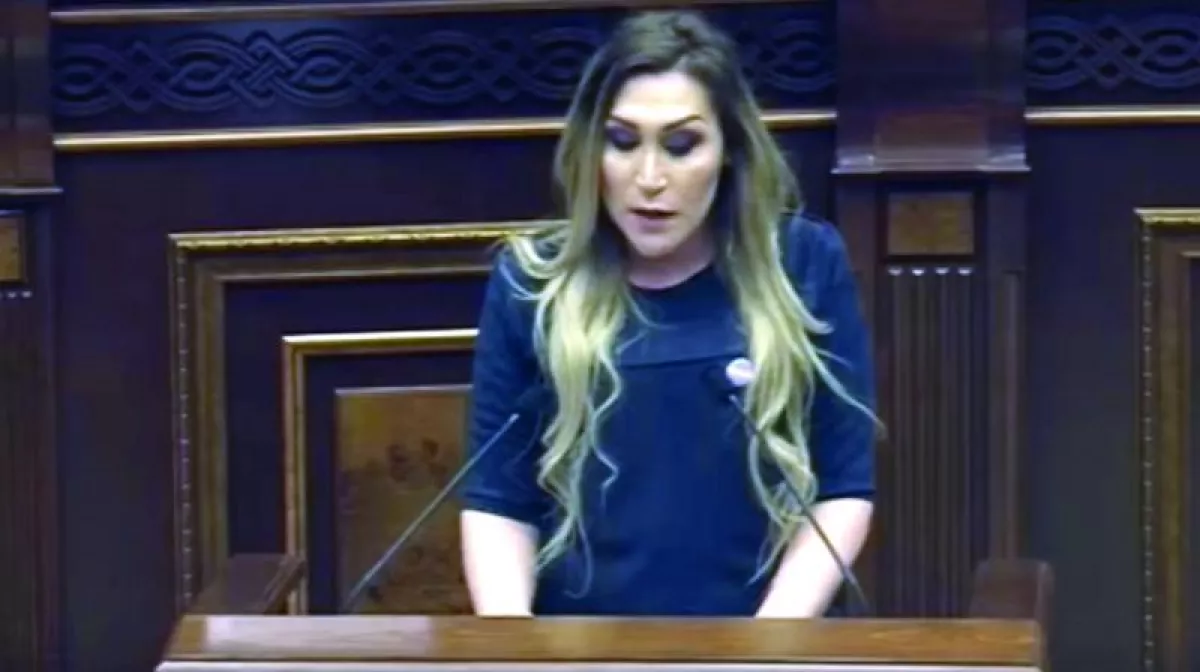
Already the following year, transgender activist Vagharshak Martirosyan — who identifies as a woman named Lilit — delivered a speech from the parliamentary rostrum. The address provoked a strong reaction from MPs, but Prime Minister Pashinyan publicly defended “Lilit.”
After the Second Karabakh War and the defeat of Armenian occupying forces — which led to the dismantling of the so-called “Artsakh” project — the advancement of the LGBT agenda was briefly put on hold. However, following the end of the conflict, the Armenian authorities resumed efforts to align more closely with the international LGBT community.
In January 2024, a shelter named “T Center” for LGBT individuals was opened in Yerevan. The centre had previously operated in Moscow but was evacuated from Russia in late 2023, shortly before the Russian Supreme Court designated the “international LGBT movement” as extremist.
Today, supporters of Armenia’s European integration proudly highlight the country’s “positive” stance toward the LGBT community — particularly in contrast with what they describe as “homophobic” and “backward” Georgia. In Armenia, not only is the legacy of film director Sergei Parajanov — imprisoned in the USSR for homosexual relations — celebrated, but his cult is actively promoted in Georgia as well, despite Parajanov being an ethnic Armenian from Tbilisi.
Against this backdrop — as relations between the EU and Georgia continue to deteriorate — Brussels warmly welcomes Armenia’s “European choice.” LGBT-related issues raise no concerns for EU officials in relation to Yerevan. A significant milestone in Armenia-EU rapprochement was reached on 30 June 2025, when EU High Representative for Foreign Affairs and Security Policy Kaja Kallas announced the adoption of the Visa Liberalisation Action Plan for Armenia.
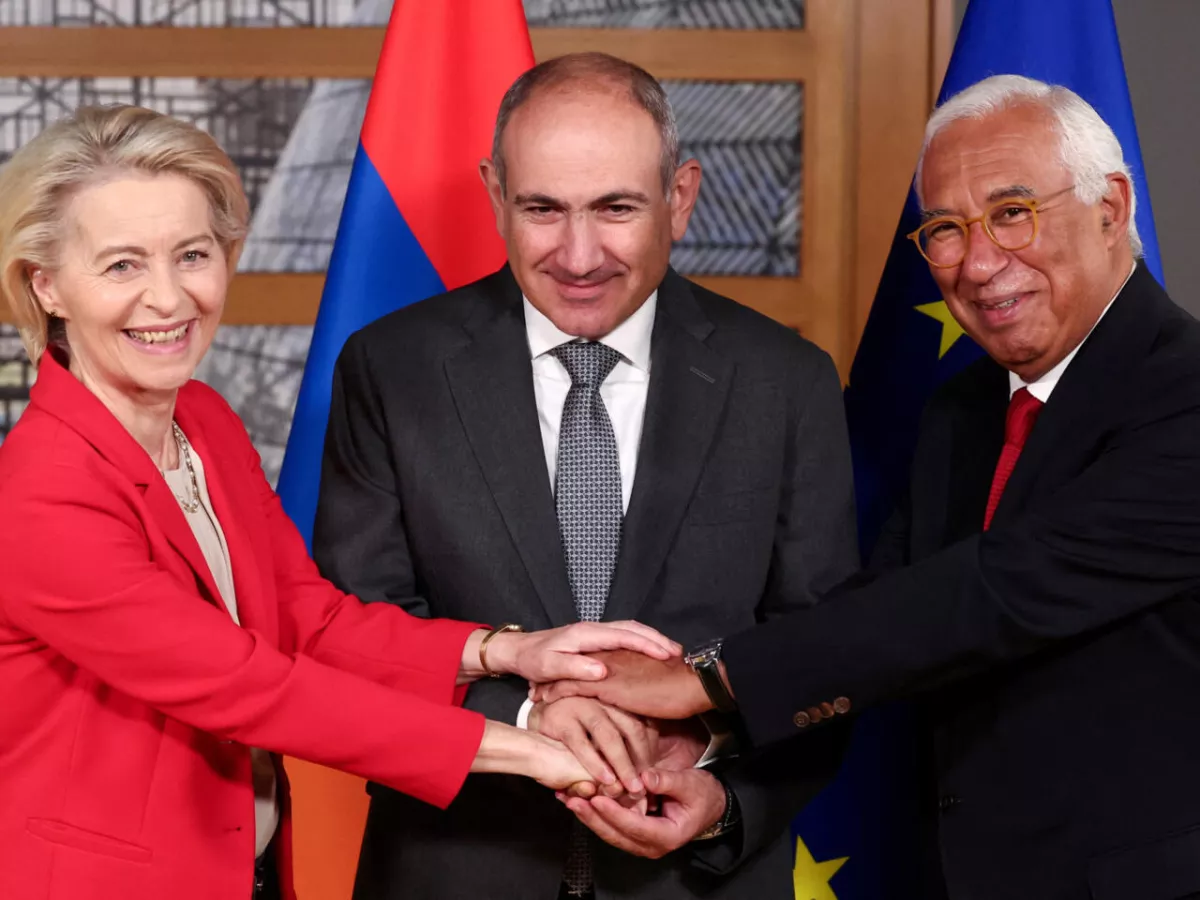
On 14 July 2025, Armenian Prime Minister Nikol Pashinyan visited Brussels, where he held talks with European Council President António Costa and European Commission President Ursula von der Leyen. EU leaders praised Armenia’s progress towards visa liberalisation and welcomed the adoption of the country’s new law “On Launching the Process of European Integration.” Pashinyan once again reaffirmed Armenia’s intention to join the European Union.
As a result, a paradoxical situation may soon unfold in the South Caucasus — Georgia could lose its visa-free regime with the EU, while Armenia gains one. Would this be a tragedy for Georgian society? Unlikely.
After all, citizens of Armenian origin dissatisfied with Tbilisi’s policies and inclined towards “European values” can always apply for an Armenian passport and gain visa-free access to the EU — by relocating to Yerevan, or directly to their long-desired Europe.
By Vladimir Tskhvediani, Georgia, exclusively for Caliber.Az








